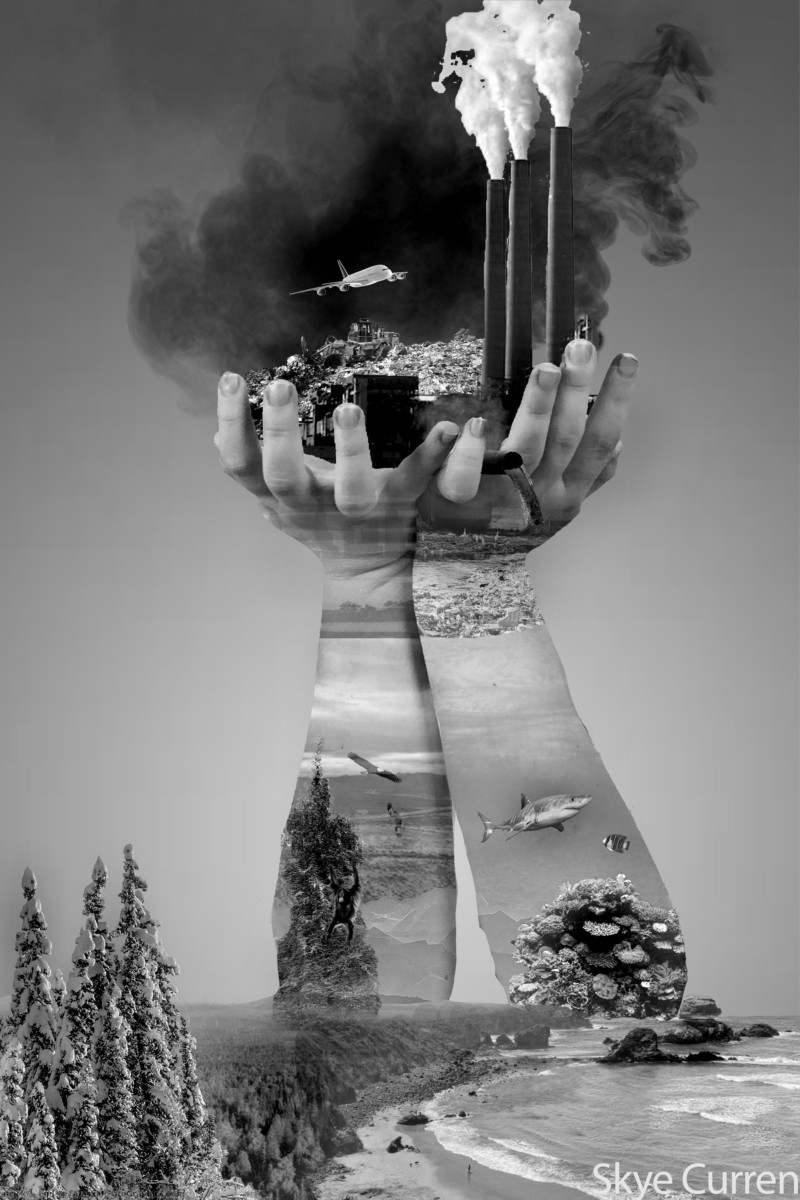Skye Curren, Editor-in-Chief
@esccourant
The most shocking piece of information revealed from this? According to the UN”s report, there are now one million species at risk of extinction because of human activity. The current rate of extinction is tens to hundreds times faster than the average over the past 10 million years, and the rate continues to accelerate. We are in the midst of humanity’s sixth mass extinction; the Anthropocene.
We have commandeered nature for our own means. Today, more than a third of all land on Earth and three quarters of our freshwater supply is dedicated to feeding our overpopulated globe. 75% of terrestrial ecosystems have been “severely altered” by human activity, and 66% of marine ecosystems. There has been more than an 85% decrease in the amount of wetlands on Earth since 1700.
And this is without even the mention of global warming; solely going off other human intervention. We are coming at nature with a multi-faceted forced: rising temperatures meaning warmer oceans (which equate to worse storms and coral bleaching) and forcing relocation of animals and trees, human conversion of wild spaces to places for the production of human goods, which mean less and less habitats for creatures, and ocean acidification which mean that after the pH drops below 4, the coral will simply dissolve.
I think that as western civilization emerged, we began to think of nature as a separate entity from ourselves- that somehow, we could exist without it. But this ignores the truth of the matter, which is that, without a healthy world around us, human civilization will collapse.
Natural ecosystems play an integral part in human lives, from the mangrove forests that prevent flooding to insects which pollinate our food to the wetlands which purify our water supply.
Our mistreatment of the world is to our own detriment. Our overuse of water supplies for agriculture is already depleting our freshwater. Our overfishing of the oceans means that, at least according to one scientific report, fish could go extinct as soon as 2048. And our rampant industrialization has caused the highest levels of carbon dioxide in our atmosphere in 300 million years, which will only perpetuate the greenhouse effect and make a significant portion of the Earth uninhabitable because of increasingly hot temperatures and rising sea levels. According to the United Nations, there could be 25 million to one billion climate refugees by 2050.
And, according to the New York Times, the loss of biodiversity means not only the loss of creatures and critical parts of Earth’s ecosystem, but it also makes our food supply more vulnerable to pests and diseases. Our actions against the environment create a positive feedback loop; as the ice melts, there is less ice to reflect the sunlight, so more heat stays in Earth’s atmosphere, which melts more ice.
And this is why it’s so harmful to act as if it is unnecessary to pretend that nature does not have an intrinsic value in and of itself.




